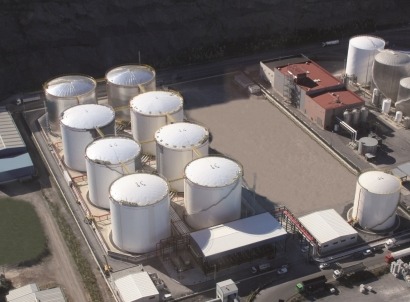
The construction of the new terminal will be carried out in several phases. The first phase will cover the construction of a bund with 5 tanks and a total storage capacity of 29,000 m3. This new infrastructure will be equipped with cutting-edge safety and environmental protection systems.
Right from its first phase, the new terminal will include port-connection infrastructures, thus enabling vessel entry and departure operations and connection to other terminals, to Exolum facilities in Zierbena and Santurce and to the company's extensive network in Spain. In turn, this will also enable the company to increase the versatility of the operational services offered, such as the receipt and storage of biofuel and raw materials with different qualities, maintenance of the required temperature, blending, and the subsequent vessel loading or dispatch to other terminals.
In subsequent phases, capacity and services will be increased by adapting logistics to the specific requirements of each type of raw material and improving flexibility.
One of the pillars of Exolum's strategy is its commitment to developing logistics investments in Spanish ports that support the energy transition, guaranteeing supply efficiency and safety. Its location in the port of Bilbao makes this terminal an important hub for biofuel and raw material flows and generates synergies with other developments that Exolum is carrying out at the ports of Gijón and Coruña in order to adapt to the energy transition. Moreover, its closeness to other key hubs on the Atlantic, such as Rotterdam, Antwerp or The Hague, facilitates the development of trading activities and will contribute, with its capacity and services, to the growth of the industrial business associated with biofuels and raw materials, supporting both the refinery activities in the area and other industrial plants.
According to Exolum's Spain Region Lead, Jorge Guillén, this represents "an important step towards Exolum's strategy of investing in Spain to develop and operate the logistics infrastructures required by new sustainable fuels, making further progress on energy transition objectives."

